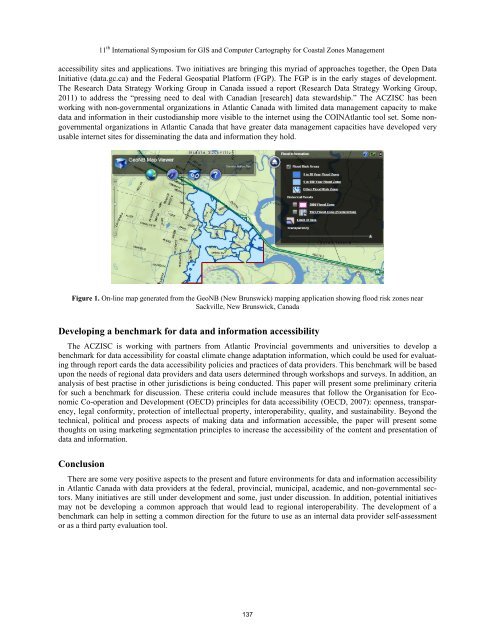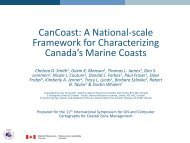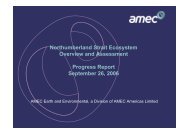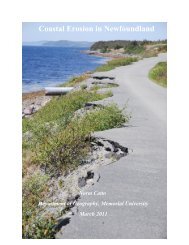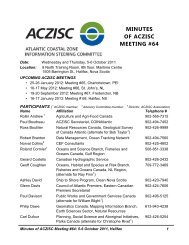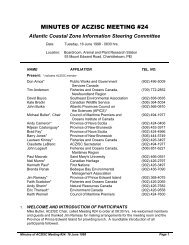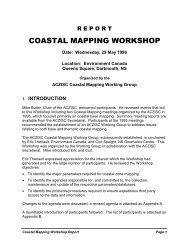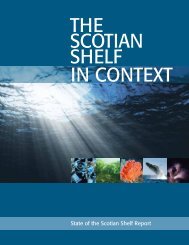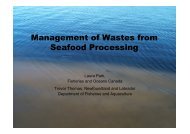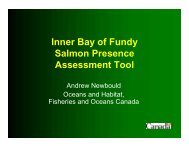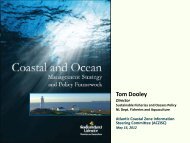Download PDF - COINAtlantic
Download PDF - COINAtlantic
Download PDF - COINAtlantic
- No tags were found...
Create successful ePaper yourself
Turn your PDF publications into a flip-book with our unique Google optimized e-Paper software.
11 th International Symposium for GIS and Computer Cartography for Coastal Zones Managementaccessibility sites and applications. Two initiatives are bringing this myriad of approaches together, the Open DataInitiative (data.gc.ca) and the Federal Geospatial Platform (FGP). The FGP is in the early stages of development.The Research Data Strategy Working Group in Canada issued a report (Research Data Strategy Working Group,2011) to address the “pressing need to deal with Canadian [research] data stewardship.” The ACZISC has beenworking with non-governmental organizations in Atlantic Canada with limited data management capacity to makedata and information in their custodianship more visible to the internet using the <strong>COINAtlantic</strong> tool set. Some nongovernmentalorganizations in Atlantic Canada that have greater data management capacities have developed veryusable internet sites for disseminating the data and information they hold.Figure 1. On-line map generated from the GeoNB (New Brunswick) mapping application showing flood risk zones nearSackville, New Brunswick, CanadaDeveloping a benchmark for data and information accessibilityThe ACZISC is working with partners from Atlantic Provincial governments and universities to develop abenchmark for data accessibility for coastal climate change adaptation information, which could be used for evaluatingthrough report cards the data accessibility policies and practices of data providers. This benchmark will be basedupon the needs of regional data providers and data users determined through workshops and surveys. In addition, ananalysis of best practise in other jurisdictions is being conducted. This paper will present some preliminary criteriafor such a benchmark for discussion. These criteria could include measures that follow the Organisation for EconomicCo-operation and Development (OECD) principles for data accessibility (OECD, 2007): openness, transparency,legal conformity, protection of intellectual property, interoperability, quality, and sustainability. Beyond thetechnical, political and process aspects of making data and information accessible, the paper will present somethoughts on using marketing segmentation principles to increase the accessibility of the content and presentation ofdata and information.ConclusionThere are some very positive aspects to the present and future environments for data and information accessibilityin Atlantic Canada with data providers at the federal, provincial, municipal, academic, and non-governmental sectors.Many initiatives are still under development and some, just under discussion. In addition, potential initiativesmay not be developing a common approach that would lead to regional interoperability. The development of abenchmark can help in setting a common direction for the future to use as an internal data provider self-assessmentor as a third party evaluation tool.137


